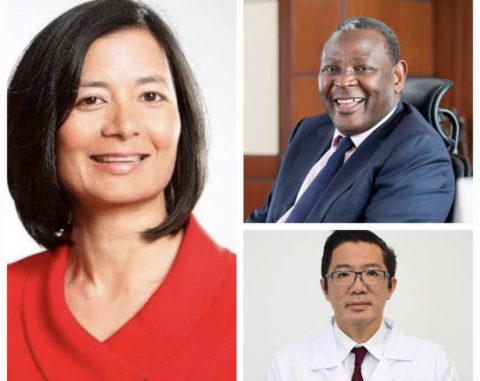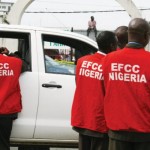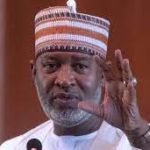Mastercard Foundation: Thrills, Frills and Contradictions
Articles/Opinion, Latest Headlines Friday, January 26th, 2024
In scope and operation, the Mastercard Foundation has grown to be one of the world’s largest foundations.
Founded in 2006 through the generosity of Mastercard (the corporate) when the payment solutions company went public, the Mastercard Foundation is a Canadian charity organisation.
In concert with other organisations the foundation works to advance education and financial inclusion to enable young people in Africa and indigenous youth in Canada to access dignified and fulfilling work. In Africa it has offices in Kigali, Rwanda; Accra, Ghana; Nairobi, Kenya; Kampala, Uganda; Lagos, Nigeria; Dakar, Senegal and Addis Ababa, Ethiopia.
Between 2018 and 2020, the Foundation launched its Africa Works programme which it says it aims to use to help 30 million young people (out of which 10 million will be Nigerians) secure dignified and fulfilling work by 2030.
The Foundation also offers scholarships and information made available on its website indicates that since 2012 it has supported nearly 40,000 transformative leaders.
The foundation also said that “To enable Scholars and young people across Africa to succeed, we know there is a need to address systemic barriers in higher education, strengthen capacity, support innovative solutions across critical sectors, and connect ecosystem actors together to amplify our impact across the continent.”
It further said working together alongside young people, universities, NGOs, and other higher education stakeholders, the scholarship programme strives to create the conditions that will enable young people to attain inclusive and relevant education, transition smoothly into dignified and fulfilling work, and lead transformative lives.
For its financial inclusion, the Mastercard Foundation has made great impact expecially in Nigeria.
In Nigeria, its financial inclusion programme has found expression in agricultural projects in different parts of the country and in this area it has recorded resounding success over the years using the Young Africa Works strategy. Its goal is quite ambitious – to enable 10 million young people in Nigeria secure dignifying employment by 2030.
The success it has achieved in agriculture can be ascribed to the painstaking process of selecting reputable non-governmental organisations as partners, professional programme design and setting ambitious goals.
A look at some of the programmes will reveal the impact Mastercard Foundation has made in Nigeria. In May 2020 the International Institute of Tropical Agriculture (IITA) partnered with the foundation to start the Young Africa Works-IITA Project.
Young Africa Works IITA-project was designed to advance agribusiness opportunities to over 40,000 Nigerian young women and men with special focus on skills development, decent employment, and entrepreneurship opportunities to secure work in agri-food value chains for the next five years.
In August 2021 Mastercard Foundation partnered with Value Seeds Limited, an indigenous crop seed production, solution, and development company, to empower 10,000 smallholder farmers in Nigeria with the distribution of farm inputs, training and access to market.
In 2021, 4,000 women and youth were provided with farm inputs and training for agronomical practices, especially in maize and rice farming and an additional 6,000 women and youth were impacted in 2022. Between May and July 2021, Value Seeds was able to complete the first and second distribution of inputs to participants.
Value Seeds Limited Managing Director, George Zangir, said he was excited to see a large number of Nigerian youth and women participating in the programme given how far-reaching the impact will be on the economy. “It is good to know that women in these locations are showing great interest in agriculture and especially farming. They are now fully involved in the entire agricultural value chain, which will directly impact our economy. As they say, when you empower a woman, you empower a nation,” he added.
These are a few of the milestones the Foundation has recorded in Nigeria. This has been made possible because of the strict corporate governance policies put in place by the Foundation’s Board of Directors.
And here lies the contradiction. While the foundation lays claim to international best practices and strong ethical standards in its operations, it doesn’t appear that it follows that thoroughly.
The 6th function of the Board of Directors of Mastercard International, the parent company of the foundation is “Ensuring processes are put in place for maintaining an ethical corporate culture.”
In its policy document entitled ‘Nigeria Code of Conduct and Appendix’ the Mastercard Foundation forbids staff against “engaging in activities that cause embarrassment to fellow employees, partners and stakeholders of the foundation.”
Specifically in Section 1.01, the Foundation notes “In order for the Foundation to be effective and be recognised as a thought leader, we must earn and maintain the trust and respect of others. We operate in a time when public expectations for how not-for-profit and philanthropic organisations conduct themselves and deploy their resources are high. Over the years, as our programmes have expanded, the Foundation has earned a high degree of trust among our partners. Our partners experience the Foundation as an ethical organisation that focuses on the poor and uses its resources wisely to ensure long-term impact in Africa. This trust is a testament to the integrity of our employees, who are stewards of our resources. As we grow, we must continue to build upon this trust.”
Section Two is CODE OF PROFESSIONAL STANDARDS AND CONDUCT
2.01 What is a Code of Ethics?
It applies to, and is binding on all Employees of the Foundation irrespective of title, role, responsibilities, or level of accreditation. It is not goal-orientated in nature, but directional and, as such, adherence to the contents of the Code is obligatory. Any contravention of the Code is grounds for action under disciplinary regulations.
2.02 What is Conflict of Interest?
A conflict of interest is an interest or activity that influences or appears to influence the Employee’s ability to exercise objectivity or impairs the Employee’s ability to perform his/her duties and responsibilities in the best interests of the Foundation. Employees must make full and fair disclosure of all matters that could reasonably be expected to impair their independence and objectivity, or interfere with their respective duties to clients, prospective clients and the Foundation. Employees must ensure that such disclosures are prominent, delivered in plain language and that the relevant information is communicated effectively.
(a) Conflicts of interest can arise in many situations. It is impossible to cover them all, and it will not always be easy to distinguish between proper and improper activity. In doubtful cases, the Employee should consult with the Foundation’s Reputational Risk Leader and/or Director of the People and Culture Department where there is no Reputational Risk Leader before taking any action. In general, a conflict of interest is considered to have arisen when:
(i) An Employee or any member of the Employee’s family’ may receive a financial or other significant benefit;
(ii) An Employee has an opportunity to influence the Foundation’s charitable activities, investment, administrative, operations or other material decisions in a manner that leads to personal gain or advantage; or
(iii) An Employee has an existing or potential financial or other significant interest which impairs or might appear to impair the Employee’s independence in the discharge of the Employee’s duties and responsibilities to the Foundation; or
(iv) A serious enough offence that merits a possible dismissal.
The President and CEO of the foundation, Reeta Roy, was in 2022 accused by her husband, Chong Wei Min of infidelity. Chong Wei Min, a professor of medicine and inventional cardiologist, went public on the allegation in a Facebook post on 14 March 2022.
In the Facebook post, the professor accused his wife of sleeping with James Mwangi, Group Managing Director/CEO, Equity Group Holdings Plc, Kenya.
Wei Min is Reeta Roy’s second husband. Her first husband, Jim Muldoon, was diagnosed of stomach cancer in 2014 and he later died.
Considering the ethical principles which Mastercard Foundation lays claims to, Wei Min said the charge of adultery is so weighty that Mastercard Foundation should have eased Reeta Roy off. He likened the Mastercard Foundation CEO to Madame Bovary, the protagonist in Madame Bovary: Provincial Manners, the novel by French writer, Gustave Flaubet, published in 1857.
The estranged husband wrote:
“I suggest that you make a clean break of it as especially everyone in Africa, Chin Graeme, and the whole of the members of Cabbage town knew that you not only were sleeping regularly with James Mwamgi of Equity Bank and that you were not only his mistress but betrayed all which everyone held dear in both Mastercard and although you thought you got away with it everyone in Cabbagetown knew that you not only destroyed a beautiful man, Jim Muldoon and decimated him, the Roadhouse painting is really a subtle red patch on a tainted woman and I honestly dont think anyone much less Christina or HE Johnson or poor Christina or James Mwangi or his long suffering wife or my dear beloved Claire would perjure you by denying the prima facie case that you should have been terminated for cause for adultery on MasterCard expense and you give Microfinance a lamentable reputation with your sordid indiscreet acts which would have put Madam Bovary to shame.”
This is the link to Prof. Chong Wei Min’s Facebook post: https://m.facebook.com/story.
In Kenya, Mastercard Foundation and Equity Group jointly sponsor a scholarship programme called The Wings to Fly Scholarship Programme.
Information put out by the Equity Group said the initiative was started “to support secondary education for top performing children from financially challenged backgrounds. With support from other partners, the program offers access to leadership training to previously marginalised children in all counties.”
It further said: “The programme offers comprehensive support for the scholars through provision of tuition fees, accommodation, books, uniform, shopping, pocket money and transport to and from school during their 4 years of secondary education. It has so far supported 26,304 bright but economically challenged scholars.”
A source with deep access to both the Equity Group and the Mastercard Foundation said the Wings to Fly Scholarship Programme is the programme funded by the foundation which is linked to the Facebook outburst by Reeta Roy’s husband.
The source further noted that the more curious thing about it is that there was massive sexual exploitation and abuse of indigent mothers of the vulnerable poor girls that the programme was designed to support (mothers were compelled to have sex with the scouting teams in order for their daughters to be enrolled for the scholarship) as well as incidents of rape of some of the girls leading to suicide by one such victim.
Our source further said journalists in Kenya have been trying to gain access to one Emmanuela (a beneficiary of the programme, who is “believed” to have had some difficult experience and may hold deep information on the girl that committed suicide) but that it appears the foundation has blocked her from speaking to anyone.
According to our investigation, the foundation is said to be fully aware of all the sexual abuses; the Wings to Fly Programme also sacked many staff and agents on account of the horrible sexual abuses.
The source asked if the Mastercard Foundation was truly committed to its values, and if Reeta Roy is not in any illicit relationship with the Group Managing Director of Equity Group, Kenya, as alleged by her now estranged husband why is the Wings to Fly Scholarship still being managed by Equity Group? Why has Mastercard Foundation not pulled out of the partnership after all these happenings?
More importantly, given Prof Wei Min’s Facebook outburt, there appears to be a conflict of interest in Reeta Roy’s relationship with Equity Group. Reeta Roy has also been accused of high handedness and running the foundation as a fiefdom with a very weak EXCO that panders to her bidding, no one dares express strong contrary opinion that may displease her, leading to extremely high non-exco level staff turnover over the last three years
Even for the Nigeria operation, Mastercard Foundation hasnt fully followed its laid down rules. It has an excellent recruitment policy which appears elaborate and painstaking but on paper. Insiders say the process is not entirely transparent. They cite as example the appointment of Rosy Fynn, the current Country Director for Nigeria.
Investigation reveals that Rosy, then Country Director for Ghana, started overseeing the Nigeria office in acting capacity when the then country director, Mrs Chidinma Lawanson, went on maternity leave in late 2022. Upon return in 2023, Mrs Lawanson chose to resign and Rosy continued to act as country director. The role was then advertised and many Nigerians applied but the process was terminated before a shortlist could be drawn. Rosy was confirmed substantive Country Director for Nigeria in May 2023. Prior to that she had never worked in Nigeria and has no country context. It is not known how many Nigerians applied for the Mastercard Foundation top job in Nigeria but a reliable source said each time a position was advertised the Foundation usually receives not less than 200 applications with 99% of them being Nigerians.
Insiders say there is no clear reason why the Foundation did not proceed to shortlist and interview applicants to fill the position of Nigeria Country Director when there are qualified Nigerians who applied for the position.
Nigeria’s Ministry of Budget and Planning allows only a maximum of 30% foreigners to be brought in to occupy positions that should be left for Nigerians except in exceptional cases of special competence not available, which in this case does not apply.
Insiders say there is discontent and disenchantment among staff in the Nigeria office since Rosy Fynn took over as country director.
•Olagoke, a development economist, writes from Lagos.
Related Posts
Short URL: https://www.africanexaminer.com/?p=93563






















